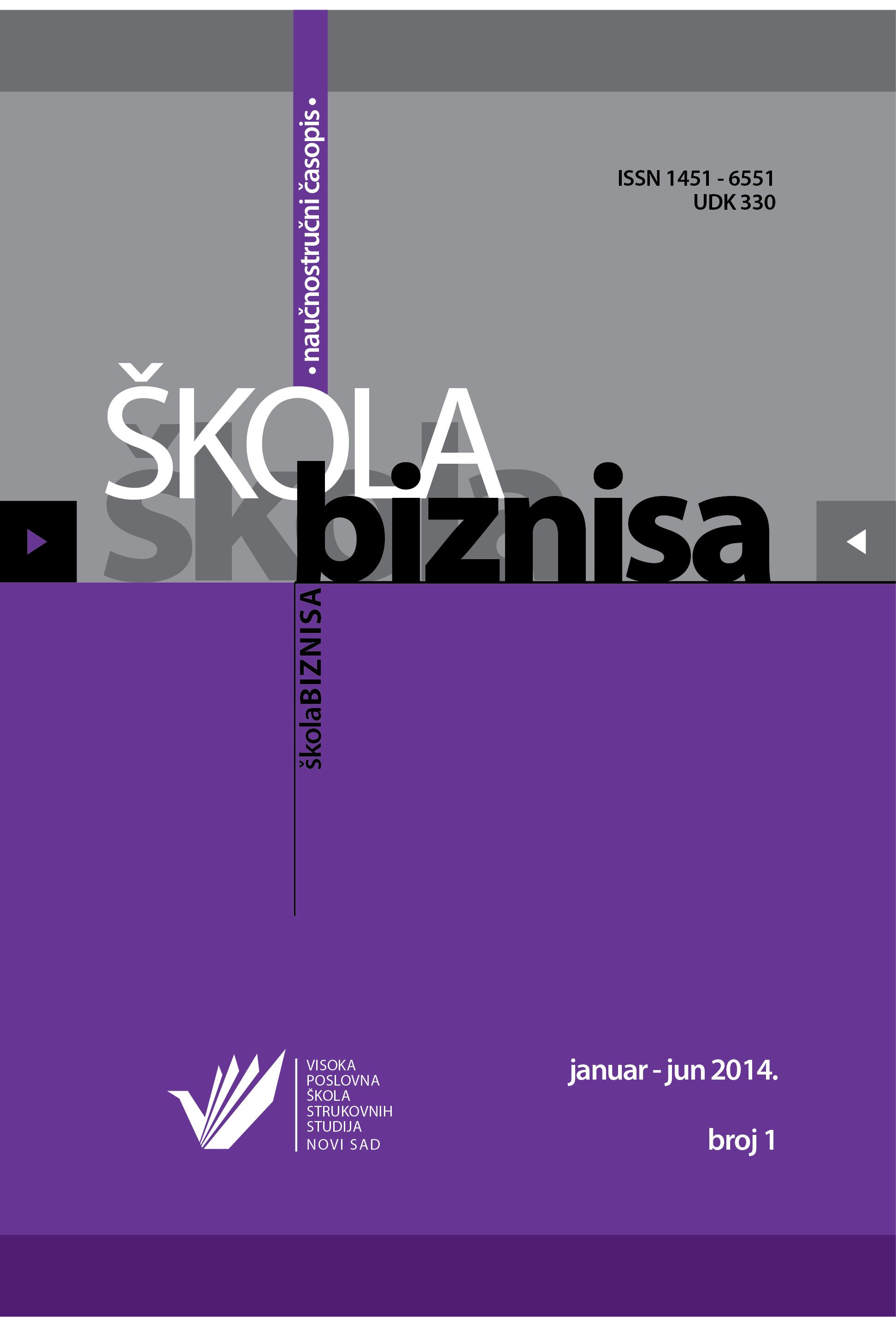KNOWLEDGE AS THE COMPONENT OF HUMAN CAPITAL IN ECONOMIC GROWTH MODELS
Abstract
The paper first explains the significance of the complex of human capital and investments in human capital in terms of the comprehensive application of the scientific results in the production process. This is followed by the basic economic analysis of the importance of explicit knowledge and tacit knowledge for the development of enterprises and individual economies. After reviewing the role of certain forms of research and development in the creation of economic value, the accent is placed on the understanding of knowledge as the component of human capital in the economic growth model. It is pointed out that in contrast to the neoclassical models that stress the importance of the process of physical capital accumulation, in models of endogenous growth the source of growth is in the process of knowledge accumulation. Endogenous growth models recognize the existence of knowledge that is not mere public goods, i.e. that has the status of the market goods. This means that some knowledge is not fully accessible to all market subjects. It refers to knowledge which is protected by various forms of intellectual property or is potentially inaccessible for use by the interested entities. Such knowledge can be treated as the production factor equal to the physical capital, which has its appropriate market structure.
References
Arrow, K. J. (1962). The Economic Implications of Learning by Doing. Review of Economic Studies, 29 (3), 155–173. doi:10.2307/2295952.
Becker, G. (1992). Investment in Human Capital: A Theoretical Analysis. Journal of Political Economy, 70 (2), 9–44.
Becker, G. (1993). Human Capital. University of Chicago Press.
Drucker, P. (1995). Postkapitalističko društvo. Beograd: Privredni pregled.
Freeman, C. (1985). The Economics of Industrial Innovations. Washington: The Brookings Institution.
Jones, C. I. (1995). R & D-Based Models of Economic Growth. Journal of Political Economy, 103 (4), 759–784. doi:10.1086/262002.
Meljancev, V. (2001). Informacionaja revoljucija – fenomen novoj ekonomiki. Mirovaja ekonomika i meždunarodnie otnošenija, 2, 3–10.
Preuzeto sa http://www.worldbank.org.
Romer, P. (1986). Increasing Returns and Long-Run Growth. Journal of Political Economy, 94, 1002–1037.
Romer, P. (1987). Growth Based on Increasing Returns Due to Specialization. American Economic Review, 77, 56–62.
Savvides, A., & Stengos, T. (2009). Human capital and economic growth. Stanford University Press.
Schultz, T. (1961). Investment in Human Capital. American Economic Review, 1, 1–15.
- Authors retain copyright and grant the journal right of first publication with the work simultaneously licensed under a Creative Commons Attribution License that allows others to share the work with an acknowledgement of the work's authorship and initial publication in this journal.
- Authors are able to enter into separate, additional contractual arrangements for the non-exclusive distribution of the journal's published version of the work (e.g., post it to an institutional repository or publish it in a book), with an acknowledgement of its initial publication in this journal.
- Authors are permitted and encouraged to post their work online (e.g., in institutional repositories or on their website) prior to and during the submission process, as it can lead to productive exchanges, as well as earlier and greater citation of published work (See The Effect of Open Access).

